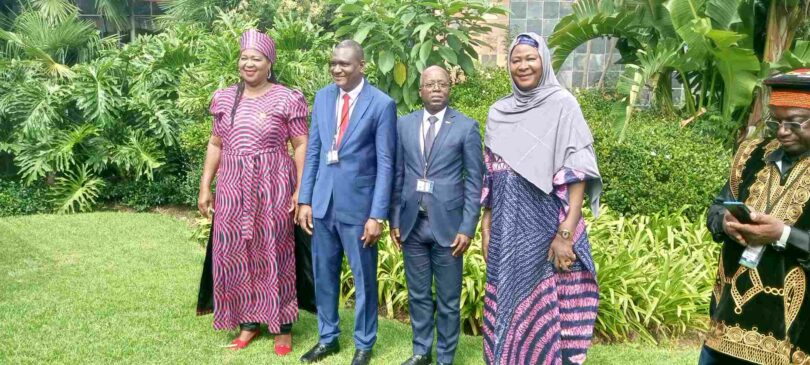|
Getting your Trinity Audio player ready…
|
The Council of Southern Africa Football Associations (COSAFA), an affiliate of the Confederation of African Football (CAF) has registered full support for the Pan African Parliament (PAP)’s push for a visa-free continent.
Addressing the PAP Committee on Education, Culture, Tourism, and Human Resources that was sitting today to deliberate on the Eradication of Visa for Sports Teams Travelling within Africa, Mr. Artur Amelda e Silva, the President of COSAFA, said there are many advantages of a Visa-free Continent.
“One of the objectives of the African Union is to have free movements within Africa for its citizens. A free movement for all Confederation of African Football (CAF) competitions is a starting point to achieving that end goal. CAF is a well-organized institution and is widely represented in the continent by countries’ football federations.
‘Teams already succumb to the struggles of the visa restrictions, never mind the fact that they only move from the airport to the hotel to the stadium, and vice versa. They are travelling with the sole purpose of playing matches and leaving the country. With this in mind, removing the stress of a visa will help the athletes remain focused on the game and sharpens them psychologically,” the COSAFA President said.
Mr. Issoufou Idrissa, the Ambassador of Sports of the Pan-African Parliament said Africa is a football-loving continent, and thus CAF activities have a positive impact not only socially on the population but financially.
“A visa-free travel will see economies benefitting from it in the long term, which will aid in promoting tourism into the different regions. CAF has 54 members on the continent, a footprint that can help in extending the agenda of the Pan-African Parliament of promoting unity and development in Africa.
“Every country has security concerns when it comes to foreign visitors entering the country, however, teams use an official letter from the ministers to travel. Thus they have a list of entrants from each country, making it easier to track visitors’ activity,” Mr. Idrissa said.
There are a number of disadvantages of visa restrictions that have broad economic consequences, notably for the tourism sector. For example, prior to 2013, Mauritius required visitors to apply for visas before arriving, while Seychelles does not require entry visas at all. This has led to a high quin tun growth.
The number of tourists to Seychelles has grown by 7 percent per annum in the last five years while Mauritius has remained almost stagnant. As a result, the Mauritian Government is trying to boost tourism by relaxing visa regimes for 30 African countries and 75 countries overall.
Certain countries have a limit on how many people can travel at once, and due to corruption you find that someone from support stuff has gotten a visa then athletes who are set to go play haven’t gotten their visas yet. So they have to call for help from the government to help quicken the process.
Visas represent high costs in terms of money and time for the individual applying for visas, as well as missed opportunities for the local service economy and for trade.
Despite several improvements to visa legislation in African countries such as Djibouti, Mozambique, and Rwanda, many immigration policies no longer respond to the present-day needs of African businesses and citizens.
Beyond tourism, visa requirements imply missed economic opportunities for intra-regional trade, and the local service economy (such as cross-country medical services or education). Visa policies are among the most important governmental formalities negatively influencing international tourism.
Visas also create inequality between those who can travel visa-free and those not (based on their reputation of citizenship or passport). Citizens of high-income countries enjoy visa-free access to many parts of the world. Africa is one of the regions in the world with the highest visa requirements.
